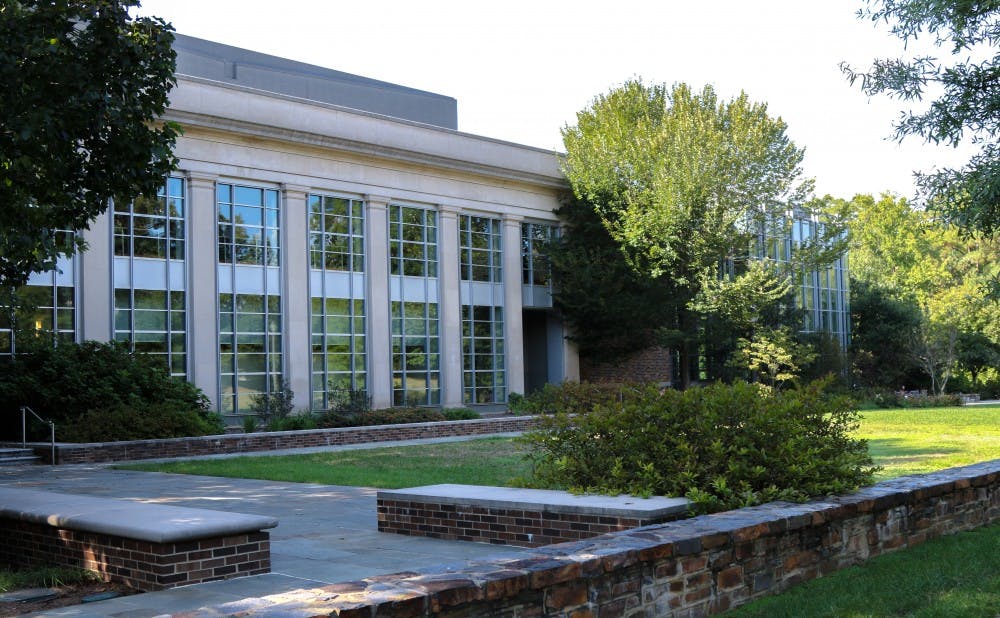The Duke Law School recently announced plans for a new First Amendment Clinic to help people who claim their rights to free speech have been violated.
Led by law professor H. Jefferson Powell, the clinic will allow law students to work with both individuals and organizations that cannot afford legal representation. Opening in August, it will primarily focus on First Amendment claims, such as advocating for the right to speak at a public university or defending against libel or slander.
“This is valuable for Duke as whole because we live in a time where many people would recognize the First Amendment is of central importance,” Powell said. “It’s a time when these issues are front and center.”
Powell has a notable background in constitutional law, serving twice as a lawyer in the U.S. Department of Justice where he worked as the deputy assistant attorney general in the Office of Legal Counsel and as the principal deputy solicitor general. He has also briefed and argued cases in state and federal courts as well as the U.S. Supreme Court.
Funding for the clinic will come from the Stanton Foundation, which supports First Amendment rights and advocates for a more informed citizenry. The foundation will also hire a lawyer with constitutional law expertise to serve as a teaching fellow and supervise students.
The Stanton Foundation approached the Law School about providing the money to set up the clinic, explained Andrew Foster, clinical professor of law and director of experiential education and clinical programs.
“We’ll be doing a lot of work with media organizations and reporters advising about their rights under the law,” he said.
Powell added that the clinic will give students hands-on experience, allowing them to represent and advise clients and be involved in litigation.
“One of the distinctive features of an education at Duke is the integration of active learning and legal education,” he said. “I’ll be in charge of making sure both sides—the experiential and academic—come together.”
Four students will work in the clinic each semester next year, but Powell noted that it will mostly likely include more as the Law School spread the word about the program and take on more clients. Second and third-year law students will be chosen through a lottery system, with a preference for third-years.
The clinic will mostly work on First Amendment cases in the Southeast. In addition to helping litigation, the students will provide advice to journalists with concerns about free expression rights.
Although the First Amendment also includes protections for freedom of religion, the clinic will focus on the spheres of freedom of speech, press and assembly. For instance, they might represent a citizen who had been thrown out of a county commissioners meeting for expressing a viewpoint that the commissioners didn’t agree with.
Powell explained that one of the best features of the clinic is that it will provide free representation for those who cannot afford it. The program also expands the Law School’s offerings as its twelfth legal clinic.
“We’re trying to always give our students the opportunity to do complex lawyering and problem-solving in relevant areas,” Foster said.
He noted that the First Amendment is critical within our constitutional framework, especially in today’s world where freedom of speech is under attack in many realms.
“This will give students the opportunity to speak about the role of speech in civic society and the ways in which the legal system can support and enhance speech or not,” Foster said. “Through that critical analysis, we can help them launch off into their professional careers with what many would see as a core value of our profession and society.”
Get The Chronicle straight to your inbox
Signup for our weekly newsletter. Cancel at any time.

